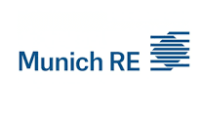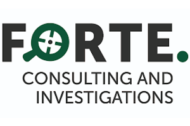UPS Pilot Inspired Charity of the Month
Focus Foundation Charity Spotlight. UPS Charity of the Month is led and supported by UPS pilots. Read to learn more.
Early Awareness Detection & Treatment for X & Y Chromosomal Variation Disorders


 READ ARTICLE | DONATE
READ ARTICLE | DONATE











2600 Housley Rd, Annapolis, MD 21401
Focus Foundation Charity Spotlight. UPS Charity of the Month is led and supported by UPS pilots. Read to learn more.
New 47,XXY Research Published Dr. Carole Samango-Sprouse. Learn more.
The Focus Foundation is the first and only research-based agency exclusively dedicated to identifying and assisting families and children who have X & Y Chromosomal Variations (Sex Chromosome Disorders), Dyslexia and Developmental Dyspraxia.
Within the X & Y Variations disorders, there are three common variations which are 47,XXY, 47, XYY and 47, XXX. These disorders may be called other names including Klinefelter syndrome (47, XXY), Triple X (47, XXX) and Jacob’s syndrome (47, XYY).
There are also children with rare variant disorders of X and Y variations including 48,XXXY and 49,XXXXY, Tetrasomy X (48,XXXX), Pentasomy X( 49, XXXXX).
Practitioners & Screening
Physicians and ancillary health care providers such as physical therapists (PT) occupational therapists (OT), speech and language pathologists (SLP) and psychologists learn that neurogenetic abnormalities typically impact a child’s development in a variety of ways. During their professional training, they often receive inaccurate or out of date information. The most current information is necessary for all of children and their genetic disorders so they can receive optimal care.
Any child with neurodevelopmental differences should be screened for X & Y Variations including ADHD, anxiety, learning disabilities, dyslexia, developmental delay or behavioral problems.
The Focus Foundation’s research and awareness campaign wants all practitioners to think of X and Y Chromosomal Disorders whenever children are struggling in any domain of development.
Dyslexia is a specific learning disability that is neurological in origin and impacts word recognition, reading and decoding abilities; it’s believed to be present in up to 10 percent of the U.S. population. Dyslexia typically results from a deficit in the phonological component of language that is often unexpected in relation to other cognitive abilities and the provision of effective classroom instruction.
Developmental Dyspraxia, also referred to as Childhood Apraxia of Speech, is characterized by impairment in the ability to plan and carry out sensory and motor tasks. Generally, individuals with the disorder appear “out of sync” with their environment.
Symptoms vary and may include poor balance and coordination, clumsiness, bad vision, perception hardships, emotional challenges and more.
Attention Deficit Hyperactivity Disorder (ADHD) is a neurological disorder involving the common pattern of hyperactivity, impulsivity and/or inattention that interferes with development and learning.
Children with ADHD have problems organizing and executing tasks in school and other areas of their life. They can easily be distracted and often times cannot sit still for very long.
Dyslexia is a specific learning disability that is neurological in origin and impacts word recognition, reading and decoding abilities; it’s believed to be present in up to 10 percent of the U.S. population. Dyslexia typically results from a deficit in the phonological component of language that is often unexpected in relation to other cognitive abilities and the provision of effective classroom instruction.
Developmental Dyspraxia, also referred to as Childhood Apraxia of Speech, is characterized by impairment in the ability to plan and carry out sensory and motor tasks. Generally, individuals with the disorder appear “out of sync” with their environment.
Symptoms vary and may include poor balance and coordination, clumsiness, bad vision, perception hardships, emotional challenges and more.
Attention Deficit Hyperactivity Disorder (ADHD) is a neurological disorder involving the common pattern of hyperactivity, impulsivity and/or inattention that interferes with development and learning.
Children with ADHD have problems organizing and executing tasks in school and other areas of their life. They can easily be distracted and often times cannot sit still for very long.
It’s believed that 40 percent of all children with neurodevelopmental delays could have an undiagnosed genetic disorder. Parents with a child who has developmental delays or developmental dysfunction should consider completing our X and Y questionnaire. If there are three or more “Yes” then print the questionnaire and discuss the findings with your primary care provider. Three or more questions answered “Yes” suggest that your child may be at risk for X and Y chromosomal disorders.
Your child’s primary care provider may want to consider a chromosomal analysis or provide a referral to a clinical geneticist for an evaluation. Such an evaluation and lab testing should:
– Determine if the child has the appropriate number of chromosomes (46)
– Rule out deletions (missing pieces of chromosomal material) or additions (excess chromosomal material). These findings are important for diagnosing genetic syndromes, identifying related medical issues and developing appropriate, targeted treatment plans. Help is available. Click below to take the child questionnaire.
Children who exhibit the following symptoms are considered atypical learners and could have an X & Y Variation:
This is the first book on X and Y chromosomal disorders to address these common but rarely diagnosed conditions. This book seeks to present the latest in research and clinical care addressing neuroimaging, the interaction between hormones, brain development, and neurodevelopmental progression.
Dr. Carole Samango-Sprouse and Dr. Andrea Gropman, have published a book presenting the latest in research and clinical care and addressing neurodevelopment in children with X and Y Chromosomal Variations.
Now stocked in more than 200 medical institutions across the country, this popular book is now available in paperback!
We would like to share over 25 years of our experience with boys and girls with X and Y Chromosomal Variations. You must be scared and concerned –what will happen in the future? What does an extra X or Y actually do? What will my baby look like—me or my husband or totally different? You have a million questions and seemingly no answers. But we can help–below are some of the common questions we have been asked by many, many families over the years.





























